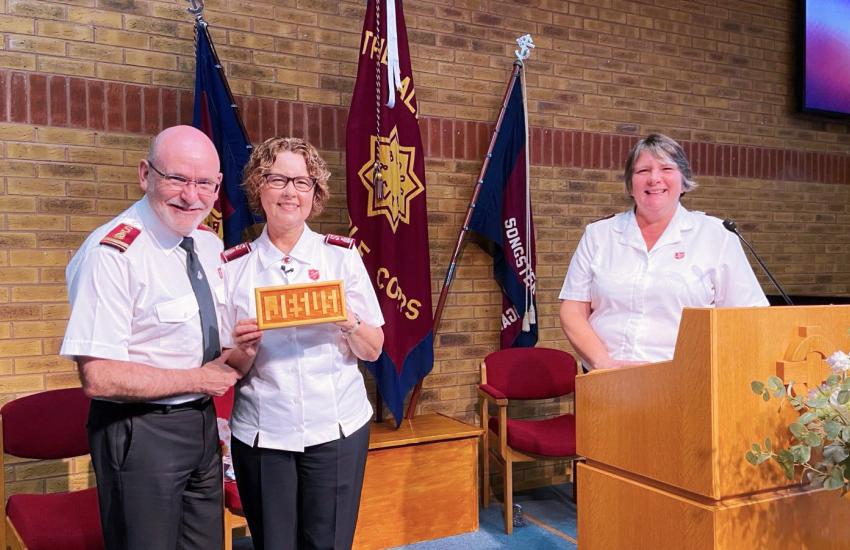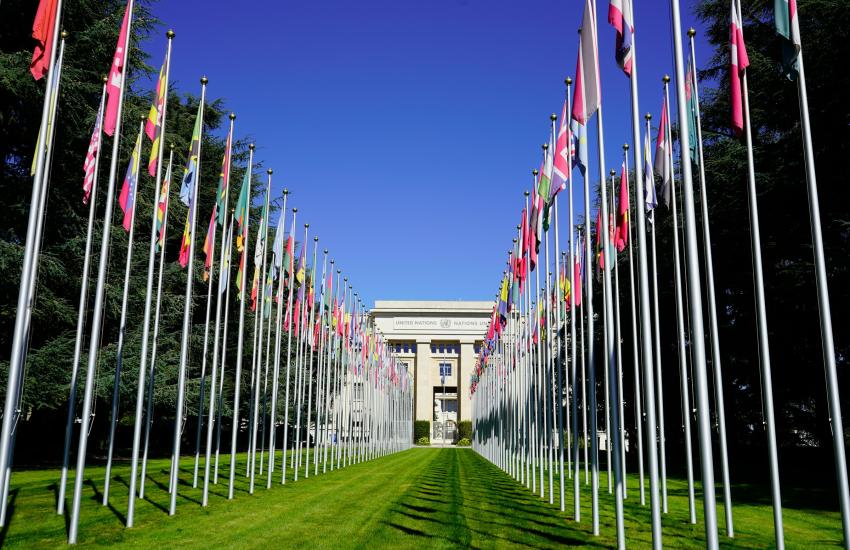A SALVATION Army convoy carrying cooking fuel is expected to journey to the Iraq port city of Umm Quasr within days. An assessment of the humanitarian needs of war victims in southern Iraq has shown that clean water and cooking fuel are desperately needed. Representatives of the World Food Programme (WFP) have requested that The Salvation Army provide propane cooking gas to the war-damaged cities in the region. The Salvation Army advance team in Kuwait City are arranging to obtain and transport bulk carrier trucks of propane gas to Umm Quasr, via the military-controlled road from the Kuwait border, and to other communities in the southern region as the areas become open to travel.
The Salvation Army, in cooperation with the United Nations agencies and other humanitarian organisations delivering care in the area, is preparing to start delivery as soon as vehicles can be leased. The cooking fuel will be donated by the government of Kuwait. The Salvation Army will use its donor-provided funds to hire trucks to transport the fuel. Salvation Army staff will work with designated community coordinators to see that the gas gets to the appropriate needy families. Major Mike Olsen, Salvation Army Iraq In-Country Director, said that he expects to lead the first convoy to Umm Quasr within days. ‘We still have a few technical hurdles to overcome and we need to put our security in place before we can actually cross the border,’ Major Olsen observed. ‘These people have no way to prepare food and raw flour doesn’t make much of a meal. We cannot delay,’ he added.
The Salvation Army also hopes to be able to cooperate with an Irish humanitarian aid organisation, ‘GOAL’, to deliver assistance to one or more communities in the regions of Al-Muthana and Thigar. Humanitarian assistance to these ‘governorates’ is being coordinated by GOAL. Al-Muthana is in the vast desert area west of Al Basra, while Thigar is located midway between Al Basra and Baghdad. Major Cedric Hills, Salvation Army International Emergency Services Coordinator, notes that, ‘We have had a very good working relationship with GOAL in our famine relief project in Malawi (Southern Africa) and we look forward to joining with them to meet humanitarian needs in south-east Iraq. The assessment to identify the communities in which we will work and the service that we will provide cannot begin until the security situation improves somewhat. This rural region is currently closed due to hostilities, though it is expected to be cleared for humanitarian travel within a week or two.’
Major Hills has returned to The Salvation Army’s International Headquarters in London to coordinate the provision of international humanitarian assistance and to prepare teams for their field assignments in Iraq. The first team members are expected to be dispatched to Kuwait within days. Major Olsen will remain in the region and will proceed with the plan to deliver cooking fuel. As the programme expands and more areas open up to travel by humanitarian organisations, the team expects to move northward and base itself in south-east Iraq.
London





